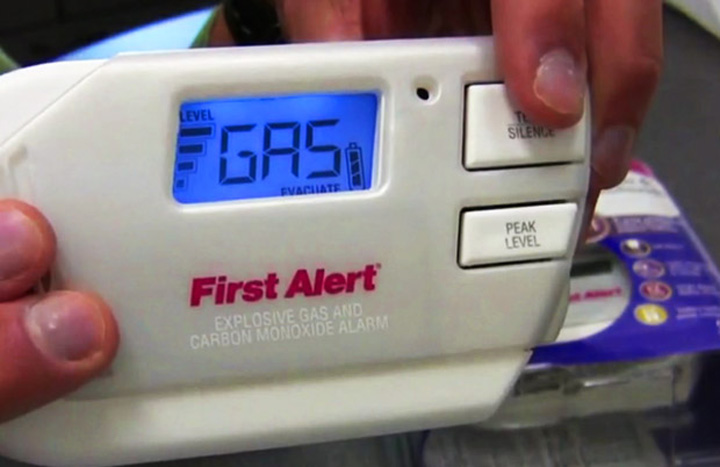TORONTO – Carbon monoxide detectors may be a staple in a growing number of Canadian homes, but a new survey suggests that doesn’t mean they’re being used effectively.

Data collected by Ipsos Reid for the Hawkins-Gignac Foundation for CO Education found the majority of survey participants don’t know how often to replace their carbon monoxide detectors or what some of their signals mean.
The online survey of about 2,000 homeowners from across the country found that 84 per cent of respondents have at least one carbon monoxide detector installed.
READ MORE: Make your home safer with these 5 tips
Foundation co-founder John Gignac says this marks a massive improvement from 2008 when he lost his niece and her entire family to CO poisoning.
He says at that time, he estimated the number would have been closer to 50 per cent at best.
But Gignac says he’s troubled by data showing 61 per cent of respondents are misinformed about when to replace their detectors, and that 78 per cent of those who have heard their alarms beep in a non-emergency situation don’t know what that means.
“You need to educate yourself on the alarms and make sure that you know that they’re only good for seven to 10 years. If you’re not sure, go out and replace it.”

Get weekly health news
Gignac, a former firefighter, became personally invested in the cause of raising carbon monoxide awareness after the 2008 death of his niece.
Laurie Hawkins, who was working as an Ontario Provincial Police officer at the time, was living in a home with no means of perceiving an increase in CO levels.
When the chimney became blocked, lethal CO levels accumulated in the home and killed Hawkins, her husband Richard, their 14-year-old daughter Cassandra and their 12-year-old son Jordan.
Gignac said he still grapples with a sense of personal responsibility for the tragedy.
“Life just seemed to get in the way. Everybody’s moving here and there so quickly, and I was one of those people who forgot to protect my own family,” he said. “. . . I was a firefighter. I’m the one who I think should have been warning her about the dangers, and I didn’t. So this is why this is so close and near and dear to my heart.”
READ MORE: Dartmouth family thankful for live-saving carbon monoxide detector
The foundation he helped launch after Hawkins’ death helped spearhead an effort to make carbon monoxide detectors mandatory in every Ontario home. Those efforts succeeded in 2013, and Gignac credits that law for Ontario’s strong results in the recent poll.
The survey found that 94 per cent of respondents from that province had detectors in their homes, compared to just 69 per cent of participants from the Atlantic provinces.
Ontario was not exempt, however, from the national trend of misinformation.
British Columbia survey respondents had the highest rate of ignorance or misinformation as to when a CO alarm needed to be replaced. The survey pegged the misinformation rate there at 69 per cent compared to 49 per cent national low registered in Quebec.
The survey also flagged potential issues around the signals a carbon monoxide detector sends out when it’s nearing the end of its usefulness.
Of the 24 per cent of poll respondents who said they had heard their alarm beep in a non-emergency situation, 78 per cent of those interpreted the sound as a cue to change the battery.
When the beep comes from more modern detectors, Gignac said the sound is in fact an indicator that the alarm must be replaced altogether.
The Ipsos poll was conducted between Aug. 27 and Sept. 2 of this year. The Marketing Research and Intelligence Association, the polling industry’s professional body, says online surveys cannot be assigned a margin of error due to their lack of random sa







Comments